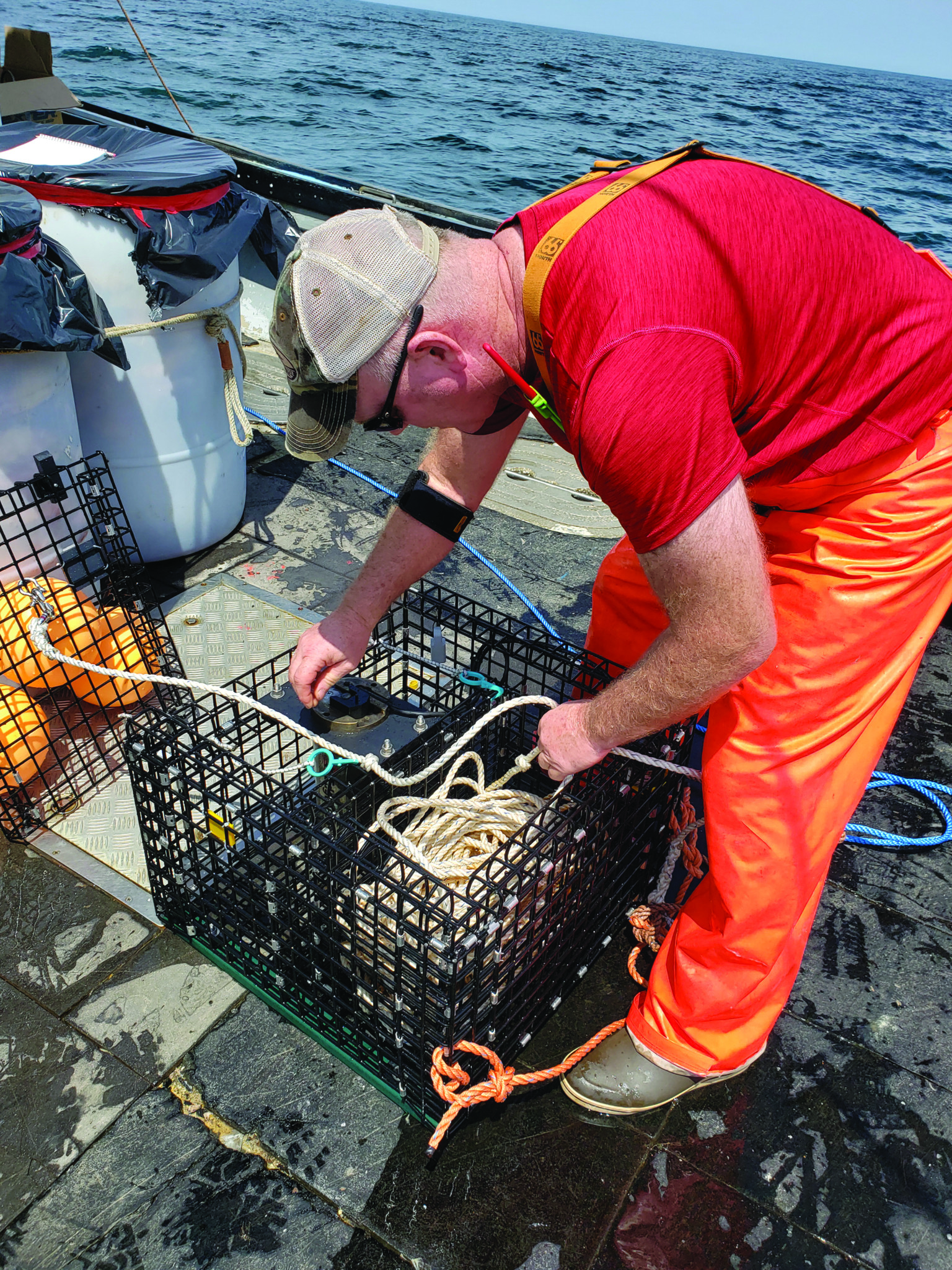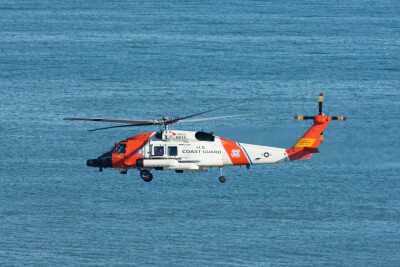A coalition of California fishing and seafood groups is grappling with environmental groups and animal welfare activists over state legislation to mandate the adoption of ropeless gear in commercial and recreational fisheries to protect whales.
The struggle is closely watched on the East Coast, where Massachusetts state fisheries officials are embarking on a one-year experiment with ropeless or “pop-up” gear aiming to reduce entanglement danger for endangered right whales.
One tack taken by California Dungeness crabbers when talking to state lawmakers is to portray ropeless gear as unreliable – and potentially increasing the danger that lost gear poses to marine mammals.
“We have a pretty strong argument on our side,” said Ben Platt, president of the California Coast Crab Association. “I think the thing that resonates most is that anyone on the fishing industry side worked with pop-up gear thinks it is unworkable.”
“There’s at least a 20 percent failure rate,” said Platt. If used widely that could lead to “tangles of lost gear…not only a huge marine pollution issue,” he said. “That’s really our number-one argument and that’s what they (state legislators) seem to key in on.”
The bill AB 534 has been delayed in legislative committee hearings until April 22, after original sponsor Assembly Member Rob Bonta, D-Oakland, was nominated by Gov. Gavin Newsom for state attorney general. Supporters and opponents of the legislation are waging campaigns by telephone and social media.
“Whales and other marine life have long been exploited by humans, nearing the point of extinction,” said Judie Mancuso, CEO and founder of Social Compassion in Legislation, a political animal advocacy group, in a statement with Bonta when the legislation was introduced in February. “It’s time we prioritize and protect our most magnificent ocean creatures and put whale entanglements in the past.”
The bill’s backers asserted ropeless gear “is the only way to eliminate entanglement risk while permitting crabbing to continue.”
“That’s why I’ve authored this vital bill, which reaffirms California’s commitment to ocean conservation and sustainable crabbing operations, while also making the state a leader in crabbing technology that can be exported and used around the world,” said Bonta.
From the crabbers’ perspective, California should be exporting its success in managing whales and commercial fishing, said Platt.
“This should be a model of how a robust commercial fishery coexists with a recovering endangered species,” said Platt.
When the Center for Biological Diversity filed a lawsuit against the state Department of Fish and Wildlife over whale interactions, the humpback whale population was estimated at 2,200 animals, said Platt. Now it’s revised to more than 7,200 with a population growth rate of 8 percent to 10 percent, he said.
The last confirmed interaction was in the 2020 season when a whale was released unharmed, said Platt: “Even with an occasional interaction, we’re a blip.”
In an April 1 statement the California Coastal Crab Association broke down the financial impact of ropeless gear at “between $720 and $2,500 per device.
"This means that a permit owner with a 500-trap tier allotment must spend between $360,000 and $1,255,000 to switch from the existing gear to ‘pop-up’ gear. By comparison, a 500-trap allotment today, including all traps, lines, buoys, and bait jars, will cost between $80,000 and $125,000.”
The association has brought seafood dealers, retailers and even recreational and charter fishing operators into its lobbying effort, said Platt.
“I’ve been buying and selling live crabs for more than a decade, including year-round delivery to many Asian restaurants and seafood markets in Assembly Member Bonta’s own district, and I can tell you his bill will make it extremely challenging for all of us to survive economically,” said George Lay, owner of Ocean King Fish, in a joint statement with the association. “The Asian community is all about traditions, especially live Dungeness crab; it’s at every family gathering. AB 534 will price live crab out of reach for a lot of families, essentially killing this tradition and many businesses in the process.”
With requirements that already surpass federal protections, California’s state policy is zero interactions.
“We are on board with the idea of trying to get there,” with the crabbers’ own ideas such as potentially longlining pots and recovery by grapple, said Platt. “But they have to let us do it.”







